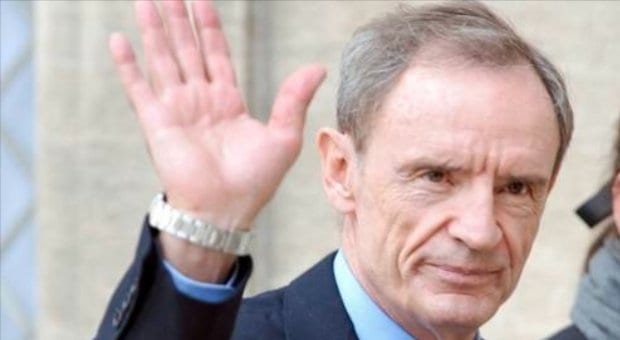The International Olympic Committee (IOC) is coming under fire for saying that it doesn’t have the right to discuss the laws in the country where the Olympic Games are organized.
At a press conference following a last visit to Sochi, IOC Coordination Commission chair Jean-Claude Killy said Russian officials had given assurances there’ll be no discrimination, The Associated Press reports.
“As long as the Olympic Charter is respected, we are satisfied.”
Killy’s remarks come on the heels of the arrest of activists for protesting the so-called gay propaganda law outside the headquarters of the Sochi Olympics organizing committee.
Killy’s comments follow a statement from former IOC president Jacques Rogge last month that he had received “strong written reassurances from the Russian government that everyone will be welcome at the games in Sochi regardless of their sexual orientation.”
When Germany’s Thomas Bach was elected IOC president this month, he also touted the receipt of “assurances from the highest authorities in Russia.”
But human rights organizations are taking the IOC to task for ignoring concerns raised about the Russian legislation.
“It disregards the fact that Russian law effectively prohibits people from public expression of ‘non-traditional’ sexual orientation,” says Sergei Nikitin, Amnesty International’s Moscow Office director. “This is an affront to gay and lesbian athletes and spectators. It is also a disappointment to sports fans across the world who care about the Olympic ideal.”
For its part, the Human Rights Campaign (HRC) says the IOC has abandoned both LGBT Russians and Olympic athletes.
“If this law doesn’t violate the IOC’s charter, then the charter is completely meaningless,” HRC president Chad Griffin says. “The safety of millions of LGBT Russians and international travellers is at risk, and by all accounts the IOC has completely neglected its responsibility to Olympic athletes, sponsors and fans from around the world. The IOC and its new president, Thomas Bach, are putting the good reputation of the Olympic Games and its corporate sponsors in jeopardy.”
Griffin says “mere verbal assurances” from Russian authorities that foreigners will not be subject to the “repressive laws” are not enough.
“The IOC must obtain ironclad written assurance from President Putin. But more importantly, they should be advocating for the safety of all LGBT people in Russia, not simply those visiting for the Olympics. Rescinding this heinous law must be our collective goal,” he insists.
Griffin says Killy’s statements will only add to the momentum behind global calls for the IOC and Olympic sponsors to act.
According to the Los Angeles Times, tennis great Martina Navratilova also registered her disappointment with the IOC on Twitter, saying, “The latest statements from the IOC and Jean Claude Killy are an extreme disappointment to our gay athletes. Shame on them . . .”
The IOC has previously said it will penalize athletes who make political statements at the Games, citing Rule 50 of its charter that says such demonstrations are not permitted in any Olympic sites, venues or other areas. Violations of the rule could lead to “disqualification or withdrawal of the accreditation of the person concerned.” President Putin also issued a decree last month that prohibits “gatherings, rallies, demonstrations, marches and pickets” that are not part of the Sochi Olympics and Paralympics, from Jan 7 to March 21.
The announcement of the decree came after indications that athletes are willing to use the forum of athletic competitions to take a stand against the anti-gay laws. Both American middle-distance runner Nick Symmonds and Swedish high jumper Emma Green Tregaro leveraged the spotlight on the World Athletics Championships in Russia to do just that.


 Why you can trust Xtra
Why you can trust Xtra


